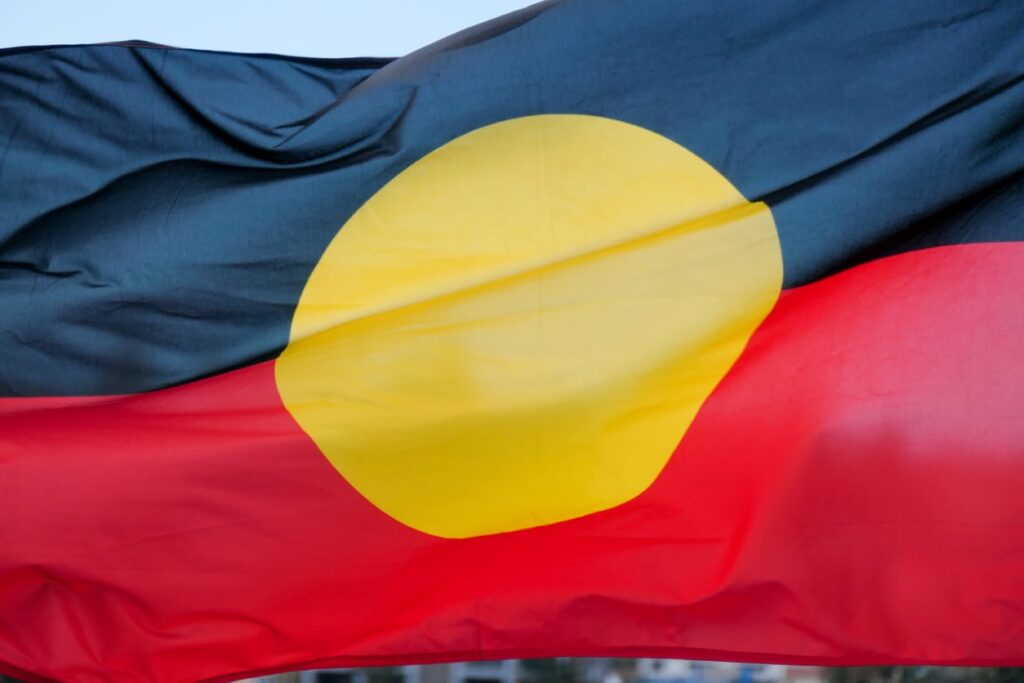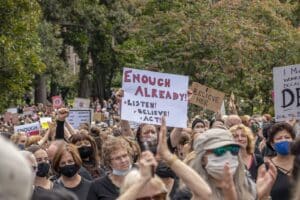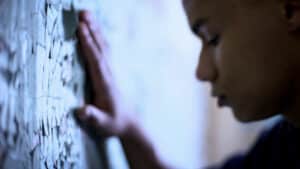
Jenan Taylor
17 October 2023
Aboriginal Christian leaders say they are frustrated that Australians didn’t listen to what most Indigenous people called for, after the Voice to Parliament referendum suffered an overwhelming defeat.
They say the outcome seemed to be a rejection of Aboriginal identity, and they were deeply concerned about the vitriol aimed at Indigenous people during parts of the debate.
But they say the outcome has strengthened their resolve to pursue Indigenous self-determination.
trawloolway man the Reverend Canon Dr Deverell said he and many Indigenous Christians in his circles felt gutted and would spend a little time trying to get some rest and perspective.
Dr Deverell said he was focusing on encouraging First Nations people to rest after they were traumatised by the public discourse leading up to the vote.
Read more: The church, like society, has become more unsafe for our people
He said the young people reported being abused in the streets and trolled online.
“When these things are discussed in public and politicians say terrible things, it emboldens racists to say out loud what they might otherwise keep under their lids most of the time,” Dr Deverell said.
He said leaders were encouraging young people to step back, rest on country for a while and listen to the voices of ancestors to be replenished.
They asked the youths to remember those who had gone before and helped bring First Nations people to where they were now for much harder fights.
Dr Deverell said a decision by the 2023 Melbourne Synod to gut a motion as it was originally put, relating to the recognition of Aboriginal and Torres Strait Islander Anglicans in Victoria, was another blow.
It made him and other Indigenous Anglican leaders in Victoria feel that the church was not a safe place for them, Dr Deverell said.
He said for that reason, he had decided to step back informally from the Anglican community for a year to do some discernment.
Read more: Five-day working week for clergy to be considered | Melbourne Synod day 3
Waka Waka woman Brooke Prentis shed tears as she reflected on the Voice outcome, and said it was hard for Aboriginal people to understand their own nation’s rejection of them and their call.
The Christian leader and education consultant believed it was vital that Aboriginal leaders who could bring healing and hope not stay silent at this moment.
Ms Prentis said if those leaders stayed silent, the only Aboriginal voices Australians would hear would be the ones that didn’t represent the majority of First Nations people.
She said it was particularly important that they, as well as any non-Indigenous people who supported Aboriginal self-determination, tackle the disinformation that abounded during the referendum campaign.
In contrast, Wiradjuri man Pastor James Dargin of New Wine Life Church, Wollongong said he was satisfied at the referendum outcome.
The Voice was a distraction for those who wanted to push for a republic, he said.
Mr Dargin said he believed the outcome would enable Australians to come together and focus on young people and those who were struggling with sexual abuse, domestic violence, drug dependence and alcoholism.
Read more: Tying two traditions together: Garry Deverell
But Dr Deverell, and Ms Prentis believed that better education for non-Indigenous people and the wider community would be a step forward on the path to self-determination, a right which empowers people to make decisions on matters that affect their lives and their communities.
They both criticised a paucity of perspective on justice for First Nations people which they saw as related to many non-Indigenous people’s lack of understanding of Indigenous history and experience.
Dr Deverell said he believed some non-Indigenous people in the baby boomer generation continued to believe what they had been taught in primary school, and that needed to change.
He said there had to be more intentional work done with very young people and some rethinking had to be done about how to get better history and cultural literacy programs in schools in poorer areas where there were low education attainment levels.
He said he planned to start campaigning for improved curriculums in schools to that end, in the hopes that if there was a similar referendum in 20 years’ time, the outcome would be far different.
Read more: A ‘Yes’ begins our journey of healing
But Ms Prentis said the matter went beyond education in the school system.
She said she planned to keep pushing for a truth telling commission, after talking about the constitution, sovereignty and treaty for 11 years.
Ms Prentis said the commission would help Indigenous people understand their common experiences.
The stories that would emerge from it would help non-Indigenous people and Christians better understand the injustices they suffered, she said.
Ms Prentis said it was education that should happen in churches, workplaces and communities, every day.
She said she also hoped to see more Aboriginal Christian leaders given platforms to continue those conversations about truth telling.
But it was up to every Australian, irrespective of their generation, to learn for themselves about the truth, she said.
Mr Dargin said he was always interested in promoting unity, and that he believed the next steps for the No side was to focus on campaigning for unity and for forgiveness.
He said he believed that was what God wanted.
For more faith news, follow The Melbourne Anglican on Facebook, Instagram, or subscribe to our weekly emails.






